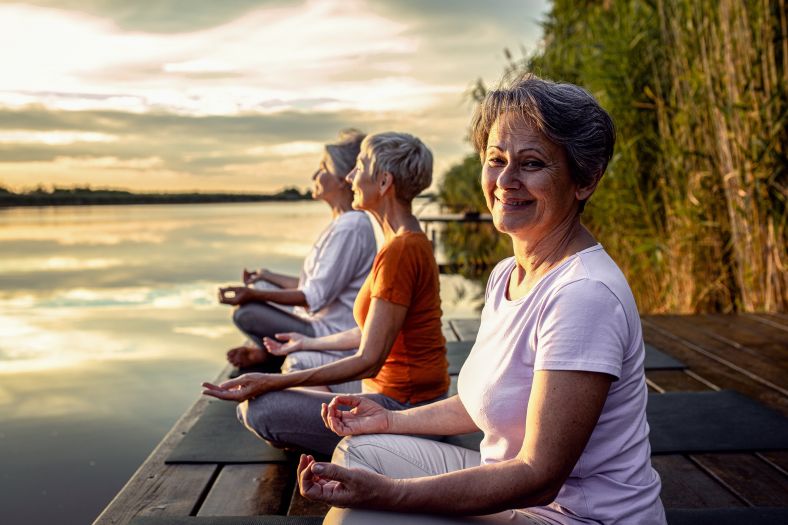Request accessible format of this publication.
Pillar 2: Health and wellbeing

Commitments under Pillar 2 aim to ensure women and girls are safe in their relationships and communities and have access to services and support that meets their needs.
Good health and wellbeing support our quality of life and underpin our social and economic participation. While the women of NSW live longer and healthier lives than their predecessors, and many health indicators are showing an upward trend, there are still areas where we can improve.
In addition to our health, feelings of safety for women in their relationships and communities is a key concern. Many – but not all – women tend to feel safe in NSW, and report feeling satisfied with their lives in general. However, this is not true for all women in NSW, with almost 50,000 violent offences against women recorded in 2022/2023.
The NSW Government has taken significant steps to address domestic, family and sexual violence, including introducing affirmative consent laws, increasing education and awareness of violence against women, and funding domestic and family violence services. However, we know that more needs to be done, including primary prevention responses, to end gender-based violence against women.
Outcome indicators
- The rate (per 100,000 population) of female victims of violent offences recorded by the NSW Police Force is 1,227.7 (In total, 49,976 female victims of violent offences in NSW; 2022/2023).1
- Over 7 in 10 (77.2%) of women in NSW are very satisfied that they feel safe, compared with over eight in ten (81.0%) of men (2021).2
- Approximately 19% (3,016) of women who were homeless at the beginning of the 2021–22 financial year were no longer homeless by the end of that same year after receiving assistance from specialist homelessness agencies.3
Approximately 6 in 10 women (65.3%) in NSW report feeling very satisfied with their lives. This is similar to men, at 66.0% (2021).4
Case study
On 18 October 2022, World Menopause Day, the NSW Government launched the Menopause Awareness Campaign to destigmatise experiences of perimenopause and menopause. The campaign was designed to raise awareness and encourage conversations about perimenopause and menopause, and focused on communities, general practitioners (GPs) and NSW Government workplaces. Women NSW is responsible for the design and delivery of the campaign.
The Menopause Toolkit, launched as part of the campaign, is a hub of free, reliable resources for community members about the symptoms of perimenopause and menopause. Since the toolkit was launched, there have been more than 45,000 visits to its pages. The toolkit includes resources such as a menopause symptoms checklist, which is translated into 8 languages, a series of podcasts about symptoms and a resource for partners and family members of those experiencing perimenopause and menopause.
International and domestic research indicates that perimenopause and menopause impact workforce participation. The Menopause Toolkit also makes available resources for employees and managers in the NSW public sector, such as fact sheets and a recording of a Working with Menopause webinar. These resources are intended to support and facilitate conversations in the workplace.
GPs are a trusted first point of contact for people experiencing symptoms of perimenopause and menopause. For this reason, the NSW Government has been working to ensure that the menopause awareness campaign supports GPs through accredited professional development opportunities.
1 NSW Bureau of Crime Statistics and Research (BOCSAR), data request, 2022/2023.
2 HILDA Survey, 2021.
3 Australian Institute of Health and Welfare (AIHW), Specialist Homelessness Services Collection data cubes, 2021/2022.
4 HILDA Survey, 2021.